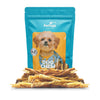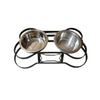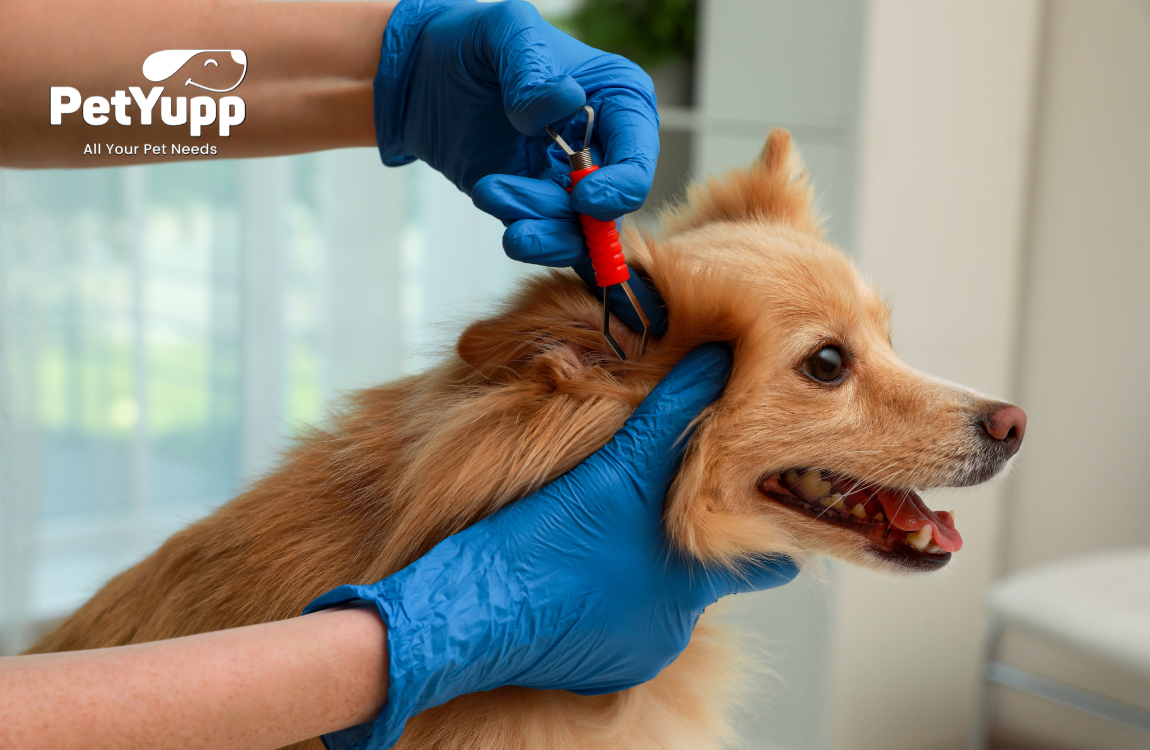If your pet is feeling weak, starting to have pale gums, and experiencing significant weight loss without any solid reason, it might be possible that your furry friend is infected with hookworms. Hookworms in dogs are pretty common when the milk of a mother dog is infected but this is not the only reason. If your dog has accidentally ingested contaminated feces or soil, there are pretty high chance that it will be exposed to hookworms.
What are Hookworms?
Hookworms are just 0.25 to 0.75-inch large intestinal parasites with hook-like mouthparts. They are pretty common in both cats and dogs. Now you might be wondering what these insignificant creatures can do to your adorable pooch! If these hooked-mouth beings latch onto the intestine of your pet, you have no idea how much blood they can consume.
A large number of hookworms can even cause anemia or inflammation in the intestine. If you live in a warm, moist environment then your pet is most likely to encounter these parasites. Keeping your pet in an overcrowded or poorly sanitized place can also subject them to hookworms.
What Causes Hookworms in Dogs?
Hearing so much about hookworms must be making you wonder how dogs get hookworms in the first place. Some possible hookworm sources are mentioned below:
- One of the most common possibilities is that the puppy is born with hookworms. If their mother is infected with hookworms, they might be exposed to them too, because of an infected uterus.
- Suppose puppies are born without any complications even after having an infected dog mother but that doesn’t necessarily mean that they are safe from hookworms. Feeding is important for every puppy and the hookworms can latch onto them through their mother’s milk.
- Environmental factors also play a major role. If dogs accidentally ingest contaminated feces or soil because of sniffing around them, there are high chances of hookworms infecting them.
- Hookworms are also very common in dogs because of their behavioral patterns. If your dog has a habit of grooming its feet with the tongue right after taking a walk outside, hookworms can make your pooch their prey.
- There is also a possibility that hookworms can penetrate the skin of your dog because of the warm, moist, overcrowded, or poorly sanitized environment.
What is the Lifecycle of the Hookworm?
First of all, microscopic eggs are laid by adult hookworms in the intestine of an infected pet. Such microscopic eggs get released through the feces where they hatch into larvae. Larvae can survive from a few weeks to months before infecting a dog again. Once they are successful in entering your pet’s body, they can mature into adults after getting into the intestine and lay their eggs to repeat the whole cycle all over again. Two to three weeks can be taken by a hookworm to become an adult. In short, eggs, larvae, and adults are the three stages of life for a hookworm.
What are the Symptoms of Hookworm Infection in Dogs?
Many symptoms of hookworm infection in dogs mentioned below can help you figure out whether your adorable pooch is infected by hookworms or not:
- Intestinal upset from a long time and blood diarrhea are the major symptoms of hookworms in dogs.
- Sudden weight loss and major loss in appetite should also alarm you that hookworms have attacked your pet’s intestine.
- You can also determine the invasion of hookworm from the fur of your dog. If the coat is dry and dull, there might be a chance that your pet is subjected to hookworms. Skin irritations are also quite common in this case.
- Pale gums, lethargy, and coughing are some of the other symptoms of hookworm infection in dogs.
How are Hookworms Diagnosed in Your Pet?
Here are the steps to diagnose hookworm infection in dogs with the help of a fecal flotation test:
For this test, get a poop bag ready so that you can bring in the fresh stool of your dog to your vet.
- Later, the vet will mix the stool with a solution that will cause any hidden eggs to float on top of the solution. This way, these eggs will be visible.
- This has to be kept in mind that this type of diagnosis will only work if the hookworms present in the intestine of your pet are adult (mature enough to lay eggs).
Can you see adult hookworms in the poop of your dog if it is infected? This question comes to mind of many people who are worried about the health of their dogs but the answer is no! Adult hookworms are securely latched into the intestinal lining of your pet so they can’t get out before seeking any proper treatment. This fecal floatation test may not work for puppies as worms may take 2 to 3 weeks to get matured enough to lay eggs.
How to Treat Dog Hookworm Infections?
Anthelmintics, a class of drugs, is used in dog hookworm treatment. These medications are taken orally and are only effective against adult hookworms in dogs. This treatment must be repeated a few weeks after the first treatment.
Sometimes these intestinal parasites cause severe health conditions like anemia in dogs. This condition can be life-threatening. In such cases, a blood transfusion is the form of dog hookworm treatment that should be employed so that a dog's life can be saved.
Can Hookworms Kill a Dog?
Pet owners whose pets are suffering from hookworms must be wondering, can hookworms kill a dog, can these intestinal parasites become deadly? Adult hookworms can create an intestinal upset in adult dogs but can also be very fatal for puppies. If left untreated for a long time, these parasites can also become deadly for adult dogs. This is why the symptoms of hookworms in dogs should never go unchecked.
Can Hookworms Infect Humans?
After hearing so many things about these parasites, one may wonder, can hookworms infect humans as well? Unfortunately yes! If you lie on a ground infected by larvae regularly then hookworms can penetrate your skin and enter into your body. Although it is very rare, hookworms can damage the internal organs of human beings resulting in blindness and other complications. Regular itching can be one of the symptoms of hookworms in humans. If you bathe regularly and have decent hygienic habits, hookworms may not trouble you.
How to Prevent Hookworms in Dogs As Well As Humans?
After all these talks about hookworms, one may wonder how to prevent hookworms in dogs as well as humans. The first step in this direction should be treating puppies with vet-approved anthelmintic products when they are 2 to 3 weeks old. In case hookworms are detected in your pup, subject him to periodic deworming to lower the risk of infection. If you want to go a step further, nursing female dogs should be dewormed as well as their puppies.
Make strict hygiene rules for yourself and your children as well. Dog Clothes can save your pooch from any outside contamination. Neither allows dogs nor children to play in an environment that is potentially contaminated. Dog feces should be regularly cleaned from all the public parks and playgrounds.
Take some tips about how to clean a dog bed and how to bathe a dog properly to reduce the risk of infection of hookworms in dogs. PetYupp has a lot of Pet Supplies that can help you maintain the hygiene of your dog.



Leave a comment